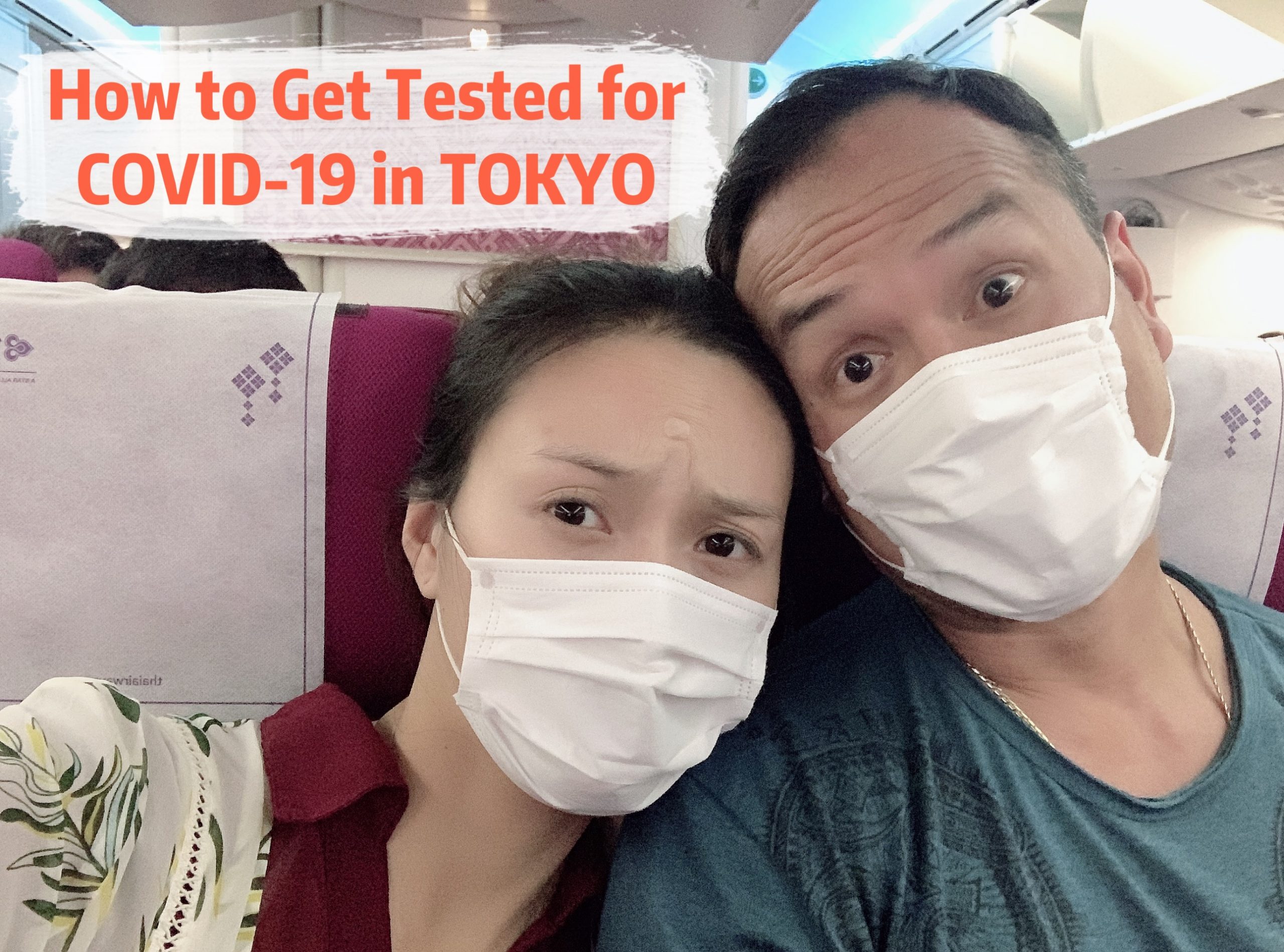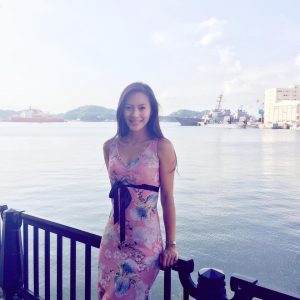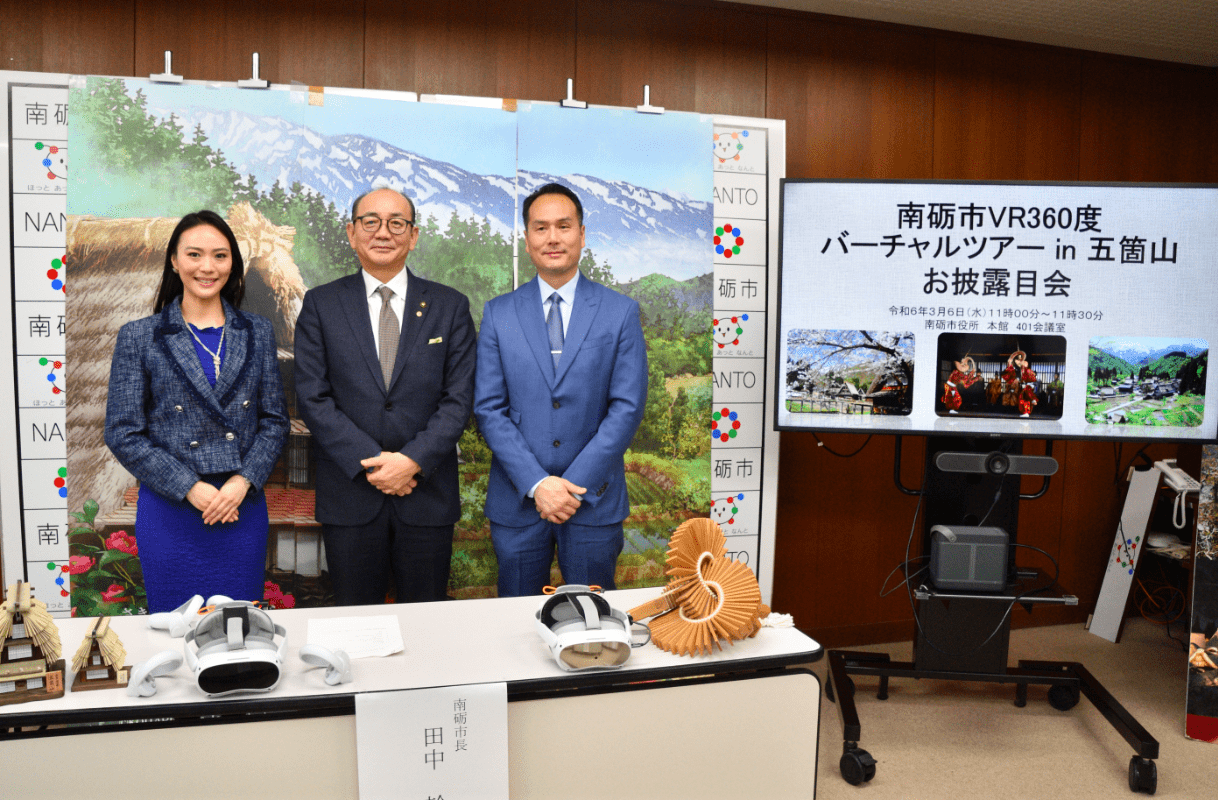What You Need To Know About Getting Tested for the Novel Coronavirus (COVID-19) in Tokyo
These truly are strange and unprecedented times. Borders have perhaps never been so closed since the advent of globalization, aviation, and international travel. It is hard to believe that this situation is unfolding in an era where increasing numbers of the world’s population is fluid and international flights are taken as much for granted as the convenience of buying groceries in most cities. It now feels surreal that is has been less than a month since my last flight, just before travel bans and restrictions were implemented, lockdowns enforced, and borders shut down globally.
Amid all the confusion in Japan (and globally) with regulatory changes in response to the coronavirus outbreak as infections increase, there is limited updated information in English on how foreign residents and tourists in Tokyo can get tested and treated for the COVID-19 virus. Moreover, much of the information is conflicting or ambiguous.
To clarify important details, I called myLocal Ward Health Center (保健所), the Tokyo Covid-19 Call Center (新型コロナ受診相談窓口), and “Himawari,” (ひまわり) the Tokyo Metropolitan Government’s Medical Advisory Service (東京都 医療機関 薬局案内サービス) providing a help desk for foreigners and non-Japanese speakers numerous times for more information.
In this article, I wanted to share what I learned concerning:
WHERE to call,
the OVERALL PROCESS from making a call to getting test results,
test ELIGIBILITY requirements
(including possible priority situations!),
what happens when you get HOSPITAL TESTING, &
how much it COSTS to get tested.
For those in Tokyo, I hope that my experience figuring out who to call and what to expect can save others critical time as well as reduce some stress and anxiety, especially for foreign residents and non-Japanese speakers.
DISCLAIMER: This article is based on my own personal experience speaking to representatives and staff at the various call centers and services as of April 4, 2020 in Tokyo, Japan. As the situation changes day by day, the content I am sharing in this article is intended to be used and must be used for reference and informational purposes only. I cannot make any warranties about the completeness, reliability, and accuracy of this article. Any action taken upon the information on this website is strictly at your own risk, and I cannot be held liable for any losses or damages in connection with the use of this article. All views expressed are my own and from my own experience, and do not represent the entity whatsoever with which I have been, am now, or will be affiliated. I will not be responsible for any material that is found at the end of links that may be posted on this website. The information presented here should not be used without first assessing your own personal situation, or without consulting with a healthcare professional.
Check Out My List of
Best FREE Courses on COVID-19!
Where to Call?
Note: If you have mild symptoms, or symptoms lasting less than 2 days, you will likely be asked to contact your personal physician. If you do not have a personal physician, the Tokyo Metropolitan Government’s Himawari service can introduce hospitals and clinics for foreigners in Japan (see below).
IF YOU HAVE SYMPTOMS:
Your Local Ward Health Center or Tokyo Himawari
If You DO Speak Japanese:
Your Local Ward Health Center
The best option is to call the health center located in the ward that you are physically located in at the time
(not necessarily the one you live or are registered in, if you are a resident)
PRO:
- Direct: Probably the most direct way to get a fast response with access to a hospital and testing under government medical coverage.
- Updated Information: Health Centers have the most updated information and are able to provide the best consultation on coronavirus issues.
CON:
- Only Japanese: Most local ward health centers only provide service in Japanese (see “Himawari” for non-Japanese speakers)
- Limited Hours: Ward health centers generally only open 9am-5pm on weekdays.
- Sometimes Inconsistent:Consultation and advice may vary depending on the local ward you are in and the representative you are speaking to.
- DIfficult to connect: Lines are often engaged, but may depend on which ward’s health center you are trying to call.
 List of Selected Health Centers with higher numbers of foreign residents: Minato Ward:03-3455-4461 Chiyoda Ward: 03-5211-8175 Setagaya Ward: 03-5432-2910 Shinagawa Ward: 03-5742-9105 Meguro Ward: 03-5722-9089 Shibuya Ward: 03-3463-3650 |
If you DO NOT speak Japanese:
Himawari
Non-Japanese speakers should call Himawari, the Tokyo Metropolitan Government’s Health Advisory Service that has a foreign help desk with assistance in English, Chinese, Korean, Spanish and Thai.
If you have MILD symptoms, Himawari service will be able to inform you of hospitals that can treat international patients or have foreign language speaking doctors.
If you have more SEVERE symptoms that make you eligible to test for coronavirus, Himawari will contact the nearest ward health center on behalf of non-Japanese speakers to make arrangements for an outpatient examination. If the person needs to be tested following the medical assessment, Himawari officials can also later assist in making arrangements for coronavirus testing.
*This service is only provided for coronavirus cases.
PRO:
- Multiple Foreign Languages: Multilingual staff provide service in English, Chinese, Korean, Spanish, and Thai.
- Easiest to Connect: Of all the relevant numbers you can call, Himawari is the most easily accessible to actually place a call and speak to a representative.
- Recommendations: Can make helpful recommendations for what to do in an emergency, or introduce hospitals and clinics for foreigners in Japan.
- Communications Assistance: Helpful assistance for non-Japanese speakers to contact their local Health Centers and arrange consultations.
CON:
- Lack of Updated Information: Himawari staff are not as informed as those at local ward health centers on protocols concerning coronavirus testing. They have to contact local health centers to relay information back to you.
| Tokyo Metropolitan Government Foreigner Desk Himawari Phone: 03 5285 8181 Languages: English, Chinese, Korean, Spanish and Thai. Opening times: 9:00am to 8:00pm (including weekends and holidays) Help Provided: Support in foreign languages for consultations, to contact local ward health centers and make arrangements for outpatient examinations, and arrangements for coronavirus testing. |
AFTER 5PM OR ON WEEKENDS:
Evening and Weekend Coronavirus Helpline (Japanese only)
Officially the “Tokyo Joint Telephone Consultation Center” (東京都合同電話相談センター) as part of the “Returnee/Recent Contact Phone Consultation Center” (帰国者・接触者電話相談センター)
Phone: 03-5320-4592
Help Provided: This hotline is supposed to provide the same service as ward health centers after hours, facilitating hospital tests for people with coronavirus symptoms.
*TIP: If you DO NOT speak Japanese, you can contact Himawari first and they will contact the evening & weekend helpline on your behalf (only during Himawari opening hours – 9am to 8pm everyday).
*VERY DIFFICULT TO CONNECT: I did not manage to get through to this line, despite attempting to call more than 40 times over the past couple of days, so cannot comment with further information on what services this hotline provides aside from what was informed by my local Health Center and Himawari.
FOR GENERAL ADVICE:
The COVID-19 Call Center
Since end of February, the Tokyo Metropolitan Government established the Tokyo Novel Coronavirus Response Headquarters, which includes a call center for general advice concerning the coronavirus.
- Phone: 0570-550-571
- Languages: Japanese, English, Chinese, Korean
- Opening times: 9:00am to 9:00pm (including weekends and holidays)
- Information provided: Measures to prevent infection, what to do if you develop concerning symptoms, advice regarding the novel coronavirus

*Note that this call center via NaviDial will cost 10 yen for every 20 seconds on the line.
PRO:
- Centralized Service: The call center has more information than the “Himawari” foreigner help desk for coronavirus cases (but often not able to provide as much specific information as the local health centers).
- Multilingual Support: Information for general inquiries about coronavirus provided via a translation service in multiple languages.
CON:
- Expensive!!: the NaviDial at the call center charges at 30 yen per minute!!
- Difficult to Connect: The call center is often engaged and you will get hung up on immediately. Even if you manage to connect, you should expect to be put on hold with a recorded message for a least some time (in my experience, the wait time varied from 30 seconds to 5 minutes before I got redirected to a representative).
- Limited Direct Help: At the time of writing, this call center will not directly provide hospital introductions for you. For any more specific inquiries or if you need to report symptoms and request a hospital visit, you will most likely just be told to call your local ward health office or the Tokyo Government Himawari (see above).
| IF NONE OF THE ABOVE SERVICES WORK,Other Useful Emergency Phone Numbers (All 24 Hours) Japan Visitor Hotline operated by the Japan National Tourism Organization (JNTO) (Available in Chinese, English, Korean)Phone: 050 3816 2787 ***Ambulatory Emergency Call Center (Tokyo Fire Department, maybe only Japanese)Dial #7119*The operator will provide assistance on whether to call an ambulance for an emergency. ***As a last resort, call an Emergency Ambulance: 119 |
OVERALL
My Experience:
1. There is quite a lot of discrepancy between information on the Tokyo Metropolitan Government website and across the various health centers and service hotlines due to the ever-evolving nature of the outbreak.
2. It is very difficult to call most of the hotlines specific to coronavirus inquiries and testing. Expect to be put on hold or get the engaged dial tone on most calls.
3. When I tried calling most of the provided phone numbers, lines were often engaged, and I was hung up on many times.
Personally, I had better success connecting in the afternoons.
Calling the local ward Health Center directly was the most helpful in providing specific advice and consultations!
TIP: It is highly recommended to arrange a hospital visit via your health center where possible, rather than contacting the hospital directly as you may not be eligible for government medical coverage if you do not go through the local ward health centers (See “COST” section below).
Who Is Eligible for Hospital Testing?
For almost everybody, the bottom line is that you will need to show that you have had a fever of 37.5C or higher for 4 (four) consecutive days before you can request to visit a hospital for testing.
TIP: Symptoms are all SELF-REPORTED, so it is important to keep track of your temperature for all days you are having a fever.
General Population:
If you have symptoms of a fever of 37.5 degrees Celsius (99.5 degrees Fahrenheit), fatigue and trouble breathing for FOUR DAYS OR MORE.

Source: TMG’s “Tokyo COVID Information”
POSSIBLE EXCEPTION #1:
Elderly Population*, Pregnant Women, or People with Underlying Health Conditions
Elderly people or those who are immunosuppressed should contact a public health center or the hotline AFTER TWO DAYS of having relevant symptoms (>37.5 degrees Celsius fever, fatigue, or trouble breathing) for a case-by-case consultation.
*Elderly Population refers to individuals over the age of 70!
POSSIBLE EXCEPTION #2:
If you have travelled internationally from a “high risk” country or
been in close contact with a COVID-19 infected person
within the last 14 days of having symptoms
You can call your local ward health center for a case-by-case consultation after 2 days of having symptoms (>37.5 degrees Celsius fever with or without respiratory symptoms).
Note: You may need to verify that you were issued a quarantine notice at the airport when entering the country or that you were in contact with a COVID-19 infected person to qualify for priority testing.
International Travel –
For details of countries deemed “high risk for COVID-19”, please go to the Ministry of Foreign Affairs of Japan website.Close Contact –
Under national reporting standards, the following are considered cases of having been in close contact:
- Having spent long periods of contact (including in a vehicle or airplane) or lived together with someone suspected of being infected with COVID-19
- Having examined, given care to, or nursed a person suspected of being infected with COVID-19, without taking adequate disease prevention measures
- Are likely to have touched something that has been contaminated by viral particles present in the coughs, sneezes or bodily fluids of someone suspected of being infected with COVID-19
Source: TMG FAQ webpage
*Although your case may be accepted by the health center, you may still be put on a waitlist at the hospital for testing unless you have severe symptoms.
*If you are having severe symptoms, your case may be prioritized for faster testing, expediated depending on your travel or close contact history.

Source: TMG’s “Tokyo COVID Information”
Hospital Testing Process
If you qualify for the above eligibility criteria with relevant symptoms to get a test:
- Consult your Local Ward Health Center (For non-Japanese speakers, contact Himawari to help you arrange consultation if necessary)
- The Ward Health Center will introduce you to a designated hospital where you may conduct a test
(Usually this is supposed to be immediate or within a few hours once you manage to contact the Health Center, and they will introduce a hospital in or near your local ward. You may experience longer delays over the weekends or in the evenings when local Health Centers are closed.)
- Contact the introduced hospital, citing your referral from the Health Center to arrange an examination
NOTE: some health centers may assist you in contacting the hospital
- Go to the hospital for the outpatient examination
NOTE: you will likely be requested to wear a mask and not take public transport or taxis.
Health Centers may arrange free transportation for you (by car) if available and necessary.
- Take the initial outpatient examination
NOTE: this will NOT be the PCR test for coronavirus
(the health examination at this stage usually includes a CT Scan and Blood Test, but doctors may assign more tests on a case-by-case basis)
- Experts or a panel of doctors (variable depending on the hospital) will review your examination results for any abnormalities
- Most test results for the initial examination will take 1-2 days.
You will be asked to return home to wait, and your local health center will contact you regarding your results.
NOTE: If your case is prioritized for same-day results, you may be asked to wait at the hospital.
Previous news reports indicate that the current law in Japan would require everyone who tested positive for COVID-19 be routinely hospitalized, but the following information is what Health Center staff advised me at the time of writing: - FOR SEVERE CASES WITH ABNORMAL RESULTS: If your test shows abnormalities and you have severe symptoms, it will be MANDATORY for you to be hospitalized immediately. Upon hospitalization, experts and doctors will decide whether you will need to take the PCR test for coronavirus.
(You will not be able to go home from the hospital, so it is advised to bring your belongings with you.)
- FOR ALL OTHER CASES WITH ABNORMAL RESULTS: If your test results are abnormal, but you have mild to moderate symptoms, you may or may not be subject to routine hospitalization, depending on the doctor’s examination. If it is deemed your case is not severe enough for hospitalization, you will most likely not be asked to take the PCR test. Instead, you will be notified to monitor your health and self-quarantine at home for 14 days. If symptoms worsen, contact your local Health Center.
- FOR CASES WITHOUT ANY ABNORMALITIES DETECTED: Your Health Center will contact you and inform you that your tests came back normal and you are not subjected to any quarantine or hospitalization at this time.

Source: TMG’s “Tokyo COVID Information”
How Much Does It Cost?
TESTING
The Good News:
The actual coronavirus test (a Polymerase Chain Reaction [PCR] test) itself will be FREE regardless of your nationality or insurance plan.
NOTE: If you end up taking the PCR test after your local Health Center arranged your hospital visit for coronavirus, the test will be FREE regardless of your result. If you are positive, you may be subject to immediate hospitalization.
However, if you go to the hospital directly (NOT through a referral from your local health center for coronavirus), you may incur medical fees for the PCR test if you test negative.
THE CATCH:
HOWEVER, according to the Minato Ward Health Center when I spoke with them, the number of actual PCR tests conducted are extremely low and hospitals are already very crowded. (>.<;)
Patients who opt to go to the hospital for testing will first have to do a CT scan and blood test (and maybe other tests as well on a case-by-case basis), which will have to PAID FOR BY THEMSELVES.This examination is estimated to cost a minimum of around 30,000~50,000 yen (USD$300-500) without insurance.
(Japanese National Insurance will cover up to 3割 or about 70%.)
HOSPITALIZATION
If you are hospitalized after abnormal outpatient examination results, the Health Center indicates that most of your hospitalization bills related to coronavirus treatment will be covered by the government, but the exact amount of coverage will depend on your specific case as well as individual insurance plan. They will not cover for any other tests, treatments, or medications etc. that you may require during the time you are hospitalized that are not directly related to coronavirus infection.
TIP: It is highly recommended to arrange for a test through your local health center!
If you go to a hospital directly instead of your local ward health center, you may not be eligible for government coverage. Moreover, many hospitals in Japan charge much higher rates (sometimes around ~300% or more of the usual fees) for those who request treatment without a referral or national insurance.
Hope this has been helpful in clarifying some confusion and conflicting information on how you may be eligible for testing for coronavirus, and what to expect from the process of contacting your health center, going to the hospital, and getting your test results in Tokyo.
Note: The above information is only applicable to getting tested for COVID-19 in Tokyo at the time of writing, and the situation may differ in other cities and prefectures in Japan.

STAY SAFE AND STAY HEALTHY EVERYONE!! <3
| Additional Resources from the Tokyo Metropolitan Government Tokyo COVID-19 Database: https://stopcovid19.metro.tokyo.lg.jp/ FAQ on Coronavirus: https://www.metro.tokyo.lg.jp/english/topics/2020/0214_00covid19.html About the Coronavirus: https://www.metro.tokyo.lg.jp/english/topics/2020/0128_00.html |









